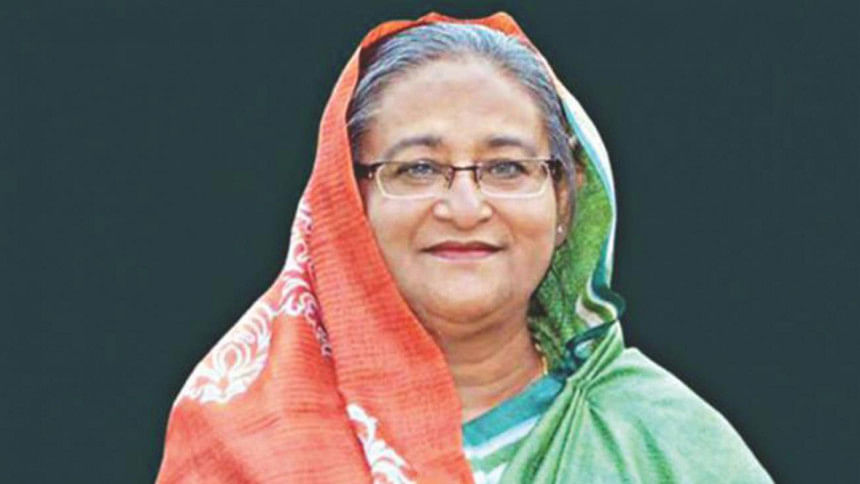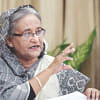Alam spread 'false' news to stir up 'trouble'

Prime Minister Sheikh Hasina says she is convinced that jailed photographer Shahidul Alam instigated trouble by spreading what she describes as "false news" about protests against her rule in August.
In an interview with Reuters in New York late last month, she described Alam, who is known as one of South Asia's preeminent photographers, as "mentally sick" and blamed his behavior on his family background.
She offered no evidence for her accusations, which Alam's family and lawyer reject.
Hasina said that Alam had spread false news as authorities were trying to calm the students.
"He tried to use this situation, to instigate it," she said. "We tried to save the children but he tried to use these children. All the false news he started... how can you accept it?"
She also sharply criticized Alam's deceased great uncle, Abdus Sabur Khan, a former government minister who opposed Bangladesh's independence and allied with Pakistan.
"He opposed our liberation war, he joined Pakistan, he didn't accept Bangladesh. In 1971 he was with the Pakistani occupation army," Hasina said. "Sometimes blood speaks, you understand that."
The war for independence is still a sensitive topic in the country.
Alam was arrested in August, hours after criticising the government's response to widespread student protests.
His detention has been widely seen as a test for freedom of speech in the country and has sparked worldwide demands for his release.
Told of Hasina's comments, Alam's family said the government had already decided on his guilt before a trial can be held. "It shows they have already made their judgment," said Alam's niece, Dilruba Karim. She added that Hasina's comments "are hugely cruel and don't befit the leader of a so-called democracy".
Anisul Huq, a cabinet minister who handles legal affairs in Hasina's government, said the country's judicial system has "full independence and freedom".
Alam, a long-term critic of Hasina's Awami League, is being investigated under a controversial section of the Information and Communication Technology Act, which Human Rights Watch says has been used in a number of arbitrary detentions of government critics and is one of several laws that have been used to stifle free speech.
The New York-based Committee to Protect Journalists has called the case "rife with due process violations", an accusation that Huq denied.
The government firmly denies it has interfered with freedom of speech. "No government has safeguarded and upheld principles of freedom of expression, freedom of speech and freedom of press as much as this government of Hasina has done," Huq said.
A new law, called the Digital Security Act, signed into law by the nation's president on Monday despite protests from local journalists and the United States, stipulates a maximum jail sentence of 14 years for several offences, including secretly recording inside government buildings and spreading "propaganda" against Bangladesh's 1971 war for independence.
About the newly-passed Digital Security Act, Hasina told Reuters that reporters had nothing to fear.
“If they have confidence that they will not do anything wrong then why should they worry," she said.

 For all latest news, follow The Daily Star's Google News channel.
For all latest news, follow The Daily Star's Google News channel. 








Comments